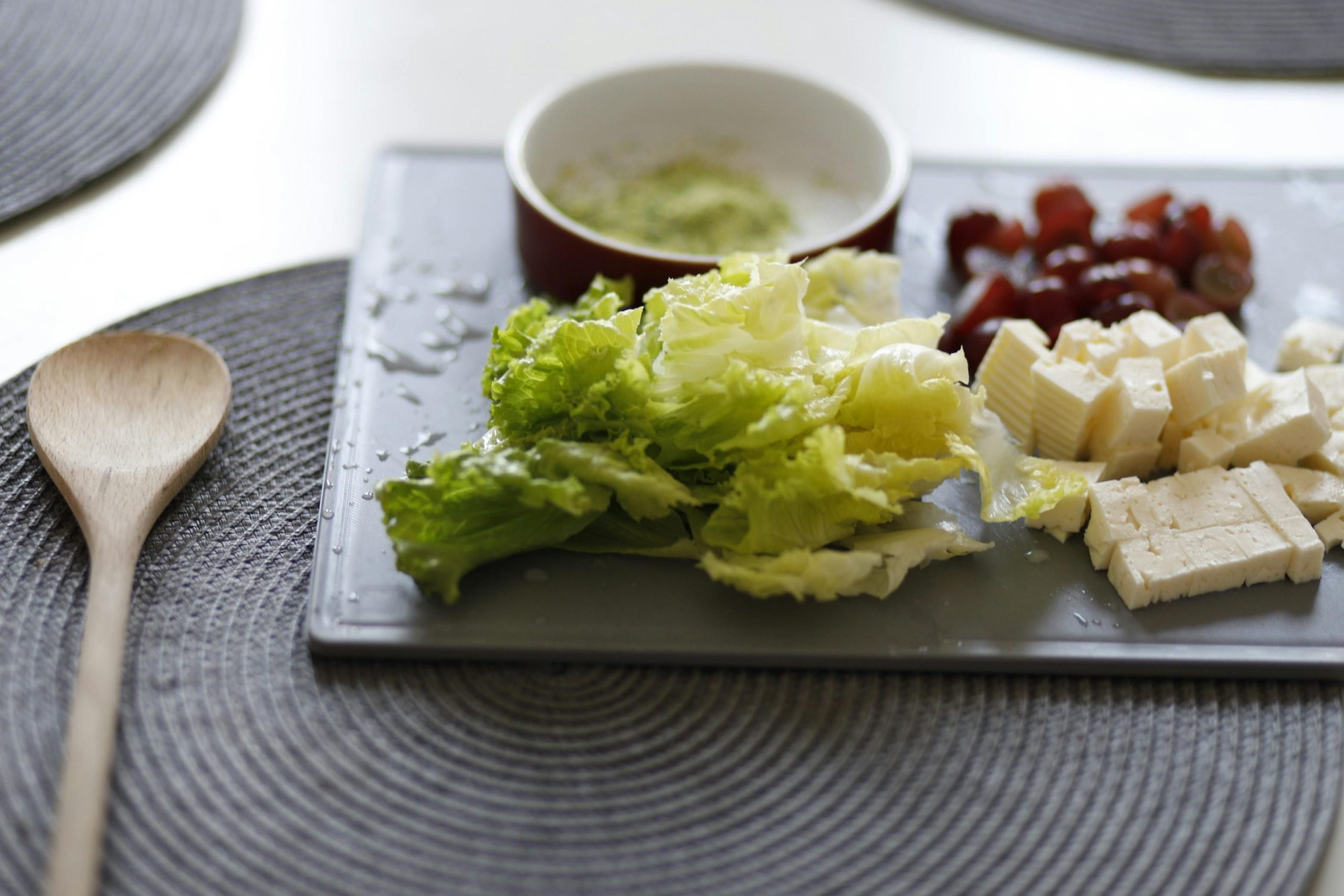Ever wondered how to whip up a batch of plant-based mashed potatoes that are just as creamy and delightful as traditional ones?
Finding a dairy-free alternative that doesn’t compromise on taste or texture can be a challenge for many.
The secret lies in selecting the right ingredients such as russet potatoes, non-dairy milk like almond or oat, and vegan butter, then following precise cooking techniques to ensure a perfect texture.
In this blog, we’ll explore everything from the essential ingredients to step-by-step instructions, storage tips, and creative serving suggestions to help you master the art of plant-based mashed potatoes.
Essential Ingredients for Plant Based Mashed Potato

Crafting the perfect batch of plant-based mashed potatoes starts with choosing the right ingredients. Essential components like the type of potatoes, plant-based milks, and fats determine not only the flavor but also the texture of your mashed potatoes. Whether you’re aiming for a creamy consistency or a fluffier texture, each ingredient plays a pivotal role in achieving the desired outcome.
While traditional recipes often call for butter and dairy milk, plant-based versions substitute these with ingredients like olive oil, almond milk, or soy milk. These alternatives not only cater to vegan and lactose-intolerant diets but also add unique flavors and nutritional benefits. Understanding the properties of these ingredients will help you make mashed potatoes that are both delicious and aligned with dietary preferences.
Choosing the Best Potatoes for Mashing

When it comes to making mashed potatoes, not all potatoes are created equal. The best choices for achieving creamy and fluffy textures are Yukon Gold and Russet potatoes. Yukon Golds are known for their naturally buttery flavor and golden color, making them perfect for a rich mash.
Russet potatoes, on the other hand, are ideal for those who prefer a fluffier, lighter texture. Their high starch content allows them to absorb flavors well, such as those from plant-based milks and butters. For the best results, a combination of both types of potatoes can be used to balance flavor and texture.
Best Plant-Based Milks for Creamy Mashed Potatoes

Choosing the right plant-based milk is crucial for creating creamy mashed potatoes without dairy. Almond milk, soy milk, and oat milk are excellent choices due to their creamy textures and neutral flavors. These milks blend seamlessly into the potatoes, enhancing their natural creaminess without overpowering the taste.
For those who enjoy a hint of coconut, unsweetened coconut milk can be a delightful addition, providing a slight sweetness and rich consistency. It’s important to gently warm the plant-based milk before mixing it into the potatoes to ensure a smooth, even texture throughout.
Using Olive Oil for Richer, Healthier Mashed Potatoes

Olive oil offers a healthier and flavorful alternative to traditional butter in mashed potatoes. Opting for a high-quality extra virgin olive oil not only infuses the potatoes with a subtle, fruity flavor but also contributes to a silky texture. This makes the dish suitable for those following a Mediterranean diet or anyone looking for a heart-healthy option.
To enhance the flavor further, consider adding minced garlic or herbs like rosemary and thyme when mashing. These ingredients complement the olive oil’s flavor profile and elevate the overall taste of the mashed potatoes. The result is a rich, aromatic side dish that pairs beautifully with a variety of main courses.
How to Make Plant Based Mashed Potatoes: A Step-by-Step Guide

To start your journey towards perfect plant-based mashed potatoes, select high-quality russet potatoes for their starchy content which aids in achieving a fluffy texture. Begin by peeling the potatoes, then chop them into even quarters to ensure uniform cooking. Place these pieces in a large pot and cover them with cold water, which helps to start the cooking process gently and evenly.
Bring the water to a boil over high heat and continue boiling the potatoes for about 15 minutes, or until they are fork-tender. This means they can be easily pierced with a fork without resistance. Once cooked, drain the potatoes using a colander and briefly return them to the hot pot on the turned-off burner. This dries them out slightly, making sure your mashed potatoes aren’t watery.
For the mashing process, transfer the potatoes to a large bowl. Use a potato masher or an electric handheld mixer to mash the potatoes to your desired consistency. For a creamier texture, add warmed plant-based milk and tablespoons vegan butter, mashing until smooth. Season with kosher salt and black pepper to taste, and if desired, sprinkle with chopped chives for a hint of freshness. Serve hot as a delicious vegan side dish.
Storing Plant Based Mashed Potatoes Effectively
To keep your plant-based mashed potatoes tasting fresh, store them in an airtight container in the refrigerator. This method preserves their moisture and flavor, ensuring they remain delicious for up to 3-4 days. Make sure the container is sealed properly to prevent any air exposure, which can lead to drying out or absorbing unwanted odors from other foods.
For longer storage, freezing is an effective option. Pack the mashed potatoes in an airtight freezer bag or container to avoid freezer burn and maintain quality for up to three weeks. When you’re ready to enjoy them again, thaw the potatoes overnight in the refrigerator before reheating. This gradual thawing helps maintain the texture and taste of your mashed potatoes.
Serving Suggestions for Plant Based Mashed Potatoes
Plant-based mashed potatoes are a versatile side that can elevate any meal. To make the most out of this dish, consider pairing it with complementary sides and entrees that bring out its creamy texture and subtle flavors. Whether you’re planning a casual family dinner or a festive holiday meal, the right combinations can turn simple mashed potatoes into a culinary delight.
For a delightful dining experience, think beyond the traditional and explore a variety of textures and flavors. Crisp, roasted vegetables or a hearty salad with a tangy dressing can contrast beautifully with the smoothness of mashed potatoes. Additionally, incorporating a protein like vegan meatloaf or a robust mushroom gravy can transform a plate of mashed potatoes into a satisfying main course.
Perfect Pairings with Plant Based Mashed Potatoes
When it comes to creating a memorable meal with plant-based mashed potatoes, the right pairings are key. Vegan gravy, with its rich and savory flavor, drizzled over fluffy mashed potatoes, makes for a comforting dish. Alternatively, a robust mushroom gravy can add a depth of flavor that complements the potatoes’ creaminess.
For those looking for a heartier meal, pairing mashed potatoes with a vegan meatloaf offers a classic comfort food experience. The meatloaf’s dense texture and savory taste, alongside the soft and creamy potatoes, create a balanced and satisfying meal. This combination is not only delicious but also provides a wholesome, plant-based feast that’s perfect for any day of the year.
Benefits of Dairy-Free Plant Based Mashed Potatoes
Dairy-free plant-based mashed potatoes offer significant benefits, especially for those with dietary restrictions. Lactose intolerant individuals can enjoy this classic dish without the discomfort that dairy products often cause. Additionally, these mashed potatoes are ideal for vegan diets, as they avoid all animal products, ensuring that everyone at the table can dig in without hesitation.
Beyond catering to specific dietary needs, dairy-free plant-based mashed potatoes also provide a healthier alternative to traditional recipes. They are typically lower in fat and calories, and can be enriched with vitamins like D and B12 when using fortified plant-based milks. This makes them not only a safe choice for those with dietary restrictions but also a nutritious option for anyone looking to maintain a balanced diet.
Secrets to Creamy Plant Based Mashed Potatoes
Achieving a creamy texture in plant-based mashed potatoes primarily hinges on the mashing method and ingredient ratios. To start, using a potato ricer or masher is essential as these tools help create a smooth, lump-free consistency without overworking the potatoes. Overworking can release too much starch and make the potatoes gummy.
In terms of ingredients, the ratio of potatoes to liquid is crucial. Aim for a balance where your potatoes are moist but not watery. Adding warm plant-based milk incrementally allows you to control the consistency and achieve that creamy vegan perfection. Remember, the key is to fold the liquids gently into the potatoes to avoid disrupting the starches too much.
Nutritional Yeast: A Flavor and Nutrition Boost for Mashed Potatoes
Nutritional yeast isn’t just a staple for vegans; it’s a powerhouse of flavor and nutrients that can transform plant-based mashed potatoes. By sprinkling in some nutritional yeast, you not only infuse a cheesy, nutty flavor into the potatoes but also boost their nutritional value significantly. This addition is particularly beneficial for those looking to enhance their vitamin intake, as nutritional yeast is rich in B-vitamins and trace minerals.
Here are some of the key benefits of adding nutritional yeast to your mashed potatoes:
- Enhanced flavor: The cheesy and nutty taste of nutritional yeast can make your mashed potatoes more appealing and rich in umami.
- Added nutrients: Nutritional yeast is a great source of B vitamins, including B6 and B12, which are essential for energy and brain health.
- Versatility: It can be easily mixed into your potatoes during the mashing process or sprinkled on top as a garnish, making it a flexible addition to any recipe.
Flavoring Plant Based Mashed Potatoes with Mustard
Adding mustard to plant-based mashed potatoes can transform the flavor profile significantly. Mustard introduces a subtle kick and a depth of flavor that enhances the natural creaminess of the potatoes. Whether you choose a sharp Dijon or a milder stoneground variety, mustard melds beautifully with the other ingredients, providing a tangy contrast that can make this dish stand out.
There are several ways to incorporate mustard into your mashed potatoes:
- Start with a small amount and add more according to your taste preferences.
- Mix the mustard thoroughly with plant-based milk and vegan butter before combining with the potatoes to ensure even distribution of flavor.
- Consider the type of mustard based on the overall flavor you desire: Dijon for a sharper taste or stoneground for a more textured, milder effect. This addition promises to elevate your plant-based mashed potatoes from ordinary to extraordinary.
Enhancing Mashed Potatoes with Roasted Garlic
Roasted garlic is a game-changer when it comes to enhancing the flavor of plant-based mashed potatoes. The sweet and mellow taste of roasted garlic cloves adds a depth of flavor that raw garlic simply can’t match. By roasting the garlic, you mellow its pungency and bring out its natural sweetness, which complements the creamy texture of mashed potatoes beautifully.
Integrating roasted garlic into your mashed potatoes is simple and can make your dish taste like gourmet cuisine. Here are a few tips to do it right:
- Roast several garlic bulbs ahead of time; you can store them in the fridge for a few days.
- Mash the roasted garlic cloves into a puree before blending them with your potatoes for a uniform flavor distribution.
- If you prefer a more textured dish, mix small chunks of roasted garlic directly into your mashed potatoes. This method allows you to enjoy bursts of garlicky flavor in every bite.
Mastering the Art of Ultimate Vegan Mashed Potatoes
Crafting the ultimate vegan mashed potatoes requires a blend of proper techniques and the right ingredients. Start with high-quality, fresh potatoes, such as Yukon Gold or Russet, known for their texture and flavor compatibility with vegan ingredients. Ensuring the potatoes are fresh and properly prepared sets the foundation for a delicious outcome.
The cooking process is equally crucial. Begin by chopping the potatoes into uniform pieces and cooking them in cold water, which allows for even cooking. Attention to these details helps in achieving the perfect consistency and enhances the overall taste of the vegan mashed potatoes.
Tips for Perfect Vegan Mashed Potatoes Every Time
To ensure your vegan mashed potatoes are perfect every time, start by selecting the right type of potatoes. Russet and Yukon Gold potatoes are ideal due to their texture and flavor absorption capacities. Make sure the potatoes are fresh and peeled, removing any sprouts or dark spots for the best results.
Here are a few more tips to perfect your dish:
- Chop the potatoes into even chunks to promote uniform cooking.
- Start with cold water to cook the potatoes evenly.
- Don’t overwork the potatoes when mashing; stop when they are smooth to avoid a gluey texture.
- Season well with salt and pepper, adjusting according to taste.
To Peel or Not to Peel: Mashed Potatoes with Skins
When making mashed potatoes, deciding whether to peel the potatoes or leave the skins on is a common dilemma. Leaving the skins on can enhance the nutritional value of the dish, as potato skins are rich in fiber, vitamins, and minerals. Additionally, skins can add a rustic texture and earthy flavor to your mashed potatoes, making them more interesting and appealing.
However, there are also reasons why some prefer to peel their potatoes for mashing. Peeling can lead to a smoother, creamier texture, which is often desired in traditional mashed potato recipes. Moreover, some types of potatoes have thicker, tougher skins that might not blend well into the mash, potentially making the dish less enjoyable. Ultimately, the decision to peel or not can depend on personal preference and the specific qualities of the potatoes used.
Discover Zurich’s Culinary Delights with INDULGE
Zurich isn’t just about picturesque landscapes and rich history; it’s a haven for food lovers too! INDULGE offers curated food tours that let you explore the city’s vibrant culinary scene. These tours are perfect for anyone eager to discover how traditional Swiss dishes can be transformed into delightful plant-based meals. By joining these tours, you’ll get a firsthand experience of Zurich’s gourmet vegan and vegetarian offerings.
Each tour with INDULGE is an opportunity to dive deep into the local food culture:
- Learn from expert guides about the transformation of classic dishes.
- Taste unique plant-based versions of Swiss favorites like Zürcher Geschnetzeltes.
- Enjoy the ambiance of Zurich’s top dining spots.
This exploration is not just about eating; it’s about appreciating the art and innovation in Zurich’s culinary world.
Frequently Asked Questions
What are plant-based mashed potatoes made of?
Plant-based mashed potatoes are made from ingredients that cater to vegan and lactose-intolerant diets. Essential components include a type of potatoes like Yukon Gold or Russet, plant-based milks such as almond milk, soy milk, or oat milk, and alternatives to traditional butter like olive oil or vegan butter. These ingredients are chosen to ensure the mashed potatoes are creamy, fluffy, and flavorful without using any animal products.
Can you eat mashed potatoes on a plant-based diet?
Yes, you can eat mashed potatoes on a plant-based diet. The recipe can be adapted to use non-dairy ingredients such as plant-based milks (almond, soy, oat) and vegan butter or olive oil instead of traditional dairy products. This allows those on a vegan diet to enjoy mashed potatoes without compromising their dietary preferences.
What plant milk is best for mashed potatoes?
The best plant-based milks for creating creamy mashed potatoes without dairy are almond milk, soy milk, and oat milk. These milks are favored for their creamy textures and neutral flavors, which blend seamlessly into the potatoes, enhancing their natural creaminess without overpowering the taste. Unsweetened coconut milk is also a great option for those who enjoy a hint of coconut flavor.







